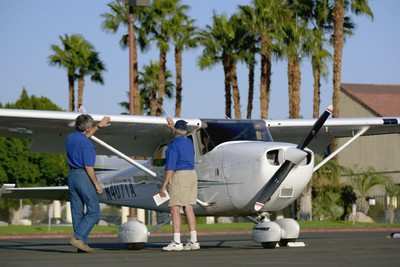Mon, Mar 21, 2005
Advertisement
More News
 Aero-News: Quote of the Day (11.17.25)
Aero-News: Quote of the Day (11.17.25)
“We achieved full mission success today, and I am so proud of the team. It turns out Never Tell Me The Odds had perfect odds—never before in history has a booster this >[...]
 ANN's Daily Aero-Term (11.17.25): NonDirectional Beacon
ANN's Daily Aero-Term (11.17.25): NonDirectional Beacon
NonDirectional Beacon An L/MF or UHF radio beacon transmitting nondirectional signals whereby the pilot of an aircraft equipped with direction finding equipment can determine his/h>[...]
 NTSB Final Report: Fred L Wellman CH 750 Cruzer
NTSB Final Report: Fred L Wellman CH 750 Cruzer
About 5ft Above Ground Level, The Airplane Stalled, And The Left Wing Dropped Analysis: The pilot reported that this flight was conducted as part of phase 1 flight testing of the n>[...]
 ANN's Daily Aero-Linx (11.17.25)
ANN's Daily Aero-Linx (11.17.25)
Aero Linx: Brodhead Pietenpol Association The Brodhead Pietenpol Association is a newly reorganized (in 2017) non-profit educational corporation that grew and developed from an ear>[...]
 Airborne-NextGen 11.11.25: Archer Buys Hawthorne, Joby Conforms, Stranded Astros
Airborne-NextGen 11.11.25: Archer Buys Hawthorne, Joby Conforms, Stranded Astros
Also: VerdeGo Contract, Medi-Carrier, Gambit 6 UCAV, Blade Urban Air Mobility Pilot Archer Aviation has inked a deal for control of Hawthorne Municipal Airport (HHR), also known as>[...]
blog comments powered by Disqus





